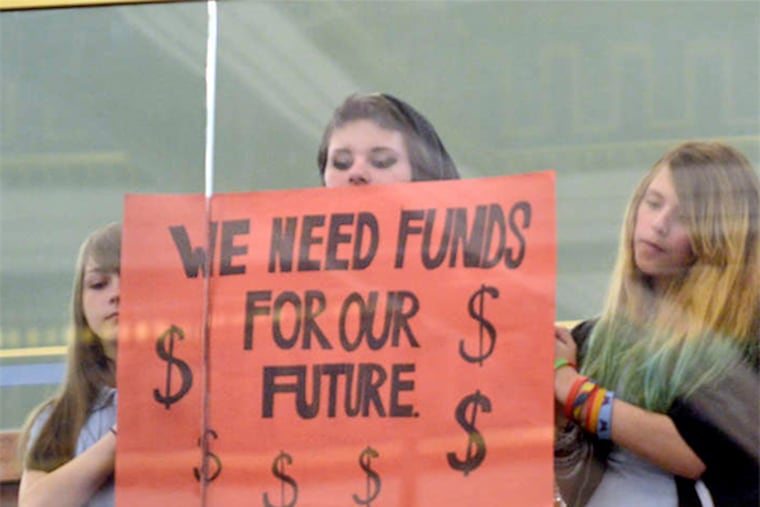Math lesson
If the contest for mayor were between a candidate who supports schools and one who doesn't, it wouldn't be much of a campaign. Declaring education important and vowing to fund it accordingly is easy. How to pay for it is the hard question - one the mayoral candidates, as their answers on today's op-ed page show, aren't especially eager to answer.

If the contest for mayor were between a candidate who supports schools and one who doesn't, it wouldn't be much of a campaign. Declaring education important and vowing to fund it accordingly is easy. How to pay for it is the hard question - one the mayoral candidates, as their answers on today's op-ed page show, aren't especially eager to answer.
Like most core government services, public education has to be funded on a recurring basis. That means one-time windfalls like Jim Kenney's tax-lien sale and several candidates' welcome promises to collect back taxes won't get the School District that far.
Other than savaging Mayor Nutter's proposed 9 percent property tax hike, the candidates are short on concrete plans for the broad-based taxes that could significantly boost long-term school funding. Nelson Diaz's detailed proposals come closest, supporting a restructuring that raises taxes on commercial property while reducing wage and business levies. (Lynne Abraham supports tax reform more vaguely). The city needs such reforms, but as a school funding solution, they have the disadvantage of requiring state constitutional changes and at least years of political warfare.
The only substantive alternative to raising revenues is reducing spending on other services, an option often given short shrift in Philadelphia. Anthony Williams' promise to dedicate more of the city's property tax income to schools suggests major cuts to other services. To some extent, so do Kenney's "zero-based budgeting," which promises to scrutinize all city spending, and Republican candidate Melissa Murray Bailey's sensible reenvisioning of school spending as the top line of the city budget. Unfortunately, none of the candidates specifies one iota of the services that would be eliminated as a result.
As to the miscellany, soaking the city's flushest nonprofits or choking off tax abatements, among other crowd-pleasers, might yield incremental rewards. But if paying for high-quality urban education were that easy, we would already be doing it. On this vexing issue, the most agreeable answers are also the most suspect.